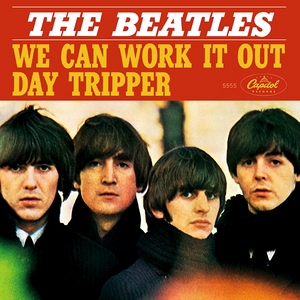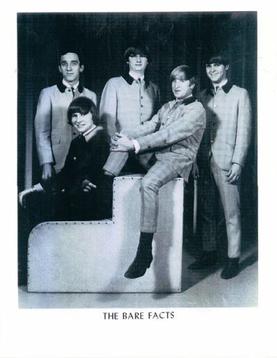Related Research Articles
Garage rock is a raw and energetic style of rock and roll that emerged In the late 1950s but flourished in the mid-1960s, most notably in the United States and Canada, and has experienced a series of subsequent revivals. The style is characterized by basic chord structures played on electric guitars and other instruments, sometimes distorted through a fuzzbox, as well as often unsophisticated and occasionally aggressive lyrics and delivery. Its name derives from the perception that groups were often made up of young amateurs who rehearsed in the family garage, although many were professional.

The Charlatans were an American folk rock and psychedelic rock band that played a role in the development of the San Francisco Haight-Ashbury music scene during the 1960s. They are often cited by critics as being the first group to play in the style that became known as the San Francisco Sound.

Laurie Records was an American record label established in New York City in 1958, by brothers Robert and Gene Schwartz, and Allan I. Sussel. Among the recording artists on Laurie's roster were Dion and the Belmonts, The Chiffons, The Jarmels, The Mystics, Bobby Goldsboro, and The Royal Guardsmen.

"Day Tripper" is a song by the English rock band the Beatles that was released as a double A-side single with "We Can Work It Out" in December 1965. The song was written primarily by John Lennon with some contributions from Paul McCartney and was credited to the Lennon–McCartney partnership. Both songs were recorded during the sessions for the band's Rubber Soul album. The single topped charts in Britain, Ireland, the Netherlands and Norway. In the United States, "Day Tripper" peaked at number five on the Billboard Hot 100 chart and "We Can Work It Out" held the top position.

The West Coast Pop Art Experimental Band (WCPAEB) was an American psychedelic rock band formed in Los Angeles, California, in 1965. The group created music that possessed an eerie, and at times sinister atmosphere, and contained material that was bluntly political, childlike, and bizarre. Representing different musical backgrounds among band members, the group, at times, resembled a traditional Byrds-esque folk rock ensemble, but the WCPAEB also, within the same body of work, recorded avant-garde music marked by multi-layered vocal harmonies.

The Outsiders were an American rock and roll band from Cleveland, Ohio, that was founded and led by guitarist Tom King. The band released the hit single "Time Won't Let Me" in early 1966, which peaked at No. 5 in the US in April. The band had three other Hot 100 top 40 hit singles in 1966, but none on the Hot 100 afterwards, and released a total of four albums in the mid-1960s.

Pebbles is a compilation of US underground and garage single record releases from the mid- to late-1960s. It had a limited original release in 1978 and a more general release in 1979. It was followed by several subsequent Pebbles compilations and albums. This album is nowadays known as Pebbles, Volume 1 and was originally issued in 1978 as Pebbles, Volume One: Artyfacts from the First Punk Era, an obvious riff on Nuggets: Original Artyfacts from the First Psychedelic Era, a similar, groundbreaking compilation from 1972.
The Pyramids were a surf group from Long Beach, California, United States, who formed in 1961. In early 1964, they made the Top 20 of the Billboard Hot 100 with their instrumental "Penetration". It proved to be the final major instrumental surf hit.

Evil was a garage rock band from Miami, Florida, active between late 1965 and early 1967. They were known for a hard–driving, sometimes, thrashing 60s punk sound that combined elements of blues, rockabilly, and British invasion influences. They recorded several songs, amongst which “Always Runnin' Around” and “Whatcha Gonna Do” were released as a single on Living Legend Records in 1966. The band would eventually be signed to Capitol Records, but broke up shortly thereafter. In more recent years they have become particularly noted for several previously unreleased songs recorded in 1966, which have been released in recent years on various independent labels from acetates, such as "From a Curbstone," "Short Life," and especially "I'm Movin' On," which is now regarded as a garage classic.

The Tempests are an American garage rock band that formed in 1962 in Tampa Bay, Florida, and have continued to remain active over the years, still playing to present audiences.

The Painted Faces were an American garage rock/psychedelic rock band from Fort Myers, Florida who were active from 1967 through 1969, who were not only popular in Florida but achieved a following outside of their own region by playing regular shows in New York City and elsewhere. After disbanding they became practically unknown for a number of years, but since the 1980s, with the reissue their songs on various compilations, they have come to the attention of garage rock and psychedelic devotees. They are known for songs such as "Anxious Color", which Mojo magazine named one of the top 100 psychedelic songs of all time.

Teenage Shutdown! "She's a Pest"! is a compilation album featuring obscure American garage and psychedelic rock musical artists that were recorded in the 1960s. It is the fifteenth and final installment of the Teenage Shutdown series. Typical of its predecessors, the album's material originated from the collection of Mike Markesich, who also provided the liner notes. The album was released on Crypt Records on February 14, 2000.

The Modds were an American garage rock band from Miami, Florida who were active in the mid-1960s, and briefly re-united in 2002. Though they did not release a record during the 1960s, their work has been posthumously compiled. Today they are best known for the song "Don't Be Late."

Teddy and His Patches were an American garage rock band formed in San Jose, California in 1964. The group, for the greater duration of its existence, was rather straightforward in their musical style; however, their best-known recording, "Suzy Creamcheese", exemplifies some of the odder aspects of psychedelia. The song was a regional hit and has since achieved favor among psychedelic music enthusiasts, who rediscovered the composition through several compilation albums.

The Bare Facts were an American garage rock band formed in Portsmouth, Ohio, United States, in 1966. Immensely popular in Ohio, the group earned a regional hit with their catchy blue-eyed soul-influenced tune "Georgiana", and the equally popular B-side "Bad Part of Town". The single the songs were featured on briefly entered the Billboard Hot 100. Though the Bare Facts could not replicate their success, the band's recordings have appeared on several compilation albums, preserving interest in the group's music.

The Montells were an American garage rock band from Miami, Florida who were active in the 1960s. They briefly operated under the name H.M. Subjects and recorded a version of the Pretty Things's "Don't Bring Me Down," which while in the process of becoming a local hit, became embroiled in a controversy involving Morton Downey, Jr., then a disc jockey at Miami's WFUN and later of talk show fame. The song was criticized for its apparently sexually suggestive lyric and the contention that Downey allegedly took payola for the song, an allegation which was never proven. The band went on to record another single, once again as the Montells, featuring an A-side for which they are remembered, "You Can't Make Me." They broke up in 1967, but reunited for a performance in 2008.
The Outsiders were an American garage rock band from Tampa, Florida who were active in the 1960s. They are not to be confused with the better-known group, the Outsiders, from Cleveland, Ohio, nor with The Outsiders from the Netherlands, both of whom were active at the same time.

"Time Won't Let Me" is a garage rock song that was recorded by the Outsiders in September 1965. The song became a major hit in the United States in 1966, reaching No.5 on the Billboard Hot 100 on the week of April 16 of that year. It is ranked as the 42nd biggest American hit of 1966. In Canada, the song also reached No.5 in the weekly charts.
The Echoes of Carnaby Street were an American garage rock band from Miami, Florida who were active in the 1960s. They became a popular live act in the Miami area and enjoyed a minor regional hit with "No Place Or Time", released on Thames Records. In the intervening years their work has come to the attention of garage rock enthusiasts, particularly with the inclusion of "No Place No Time" on the 1986 Louisiana Punk Groups From The 60's Vol. 1 compilation, which paradoxically resulted in helping contribute to the misconception that they were a Louisiana band.

The Hangmen were an American rock band from Rockville, Maryland, who were active in the 1960s. In an effort to distinguish themselves from other American groups and establish a closer affiliation with the popular British Invasion, they lured Scottish vocalist Dave Ottley to join the group. Eventually they became the most popular band in the Washington, D.C., area, having a huge regional hit with "What a Girl Can't Do", that appeared on Monument Records, but was recorded by an earlier local group, the Reekers, whose membership included two future Hangmen, Tom Guernsey and Bob Berberich. The single was nonetheless credited to the Hangmen.
References
- ↑ "The Rovin' Flames". tampabaymusichidtory.com. Retrieved March 21, 2016.
- ↑ "Pop Bands – The Rovin' Flames". richesmi.cah.ucef.edu. Retrieved March 21, 2016.
- 1 2 3 4 Bishop, Chris. "The Rovin' Flames". garagehangover.com. Retrieved March 21, 2016.
- ↑ "The Outsiders". teddwebb.com. Retrieved March 22, 2016.
- 1 2 Lemlich, Jeff (2001). "Psychedelic States: Florida in the 60s, Volume 3 (CD booklet)". Gear-Fab Records.
{{cite web}}: Missing or empty|url=(help) - ↑ Ankeny, Jason. "The Soul Trippers – Biography". allmusic.com. Retrieved March 21, 2016.
- ↑ Webb, Tedd. "The Rovin' Flames ~ 1967". teddwebb.com. Retrieved March 22, 2016.
- ↑ Stihart, Stewart. "Psychedelic States: Florida in the 60s, Volume 3 – Review". allmusic.com. Retrieved March 22, 2016.